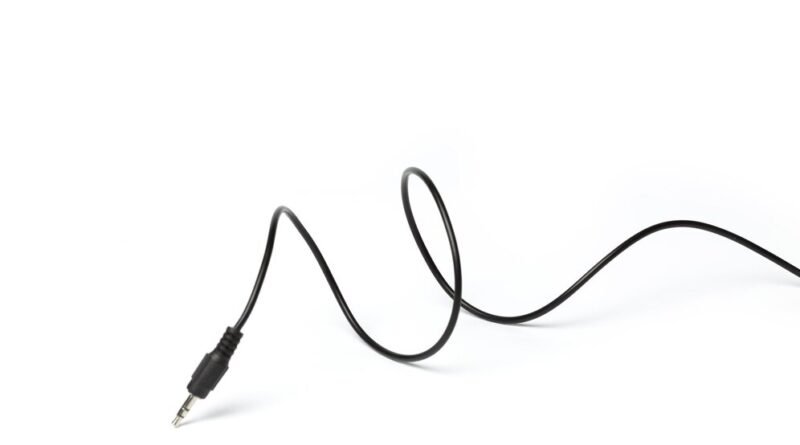Understanding Headphone Jacks: The Essential Guide
Our daily life would be impossible without headphones since they let us lose ourselves in games, podcasts, and music. The headphone jack, an interface that acts as an essential point of connection between audio devices and headphones, is fundamental to this experience. We’ll go over the several kinds of headphone jacks, their features, and all you should know to choose the right one for your audio requirements in this comprehensive guide.
What is a Headphone Jack?

Essentially, a headphone jack is a kind of audio connector that is used to connect speakers or headphones to electronics such as computers, audio equipment, and smartphones. This compact yet mighty part is essential to audio signal transmission, guaranteeing that the sound quality you anticipate is delivered. Even though they may appear simple, headphone jack complexities can be quite intricate.
Types of Headphone Jacks
1. 3.5mm Audio Jack: The Universal Standard
Probably the most familiar kind of headphone connector is the 3.5mm audio jack. Numerous devices, including laptops and smartphones, have adopted it as the standard for audio communication. Rich sound quality is provided by the stereo audio capabilities provided by the 3.5mm connector.
Variants of the 3.5mm Jack
- TRS (Tip-Ring-Sleeve): This version is used for standard stereo sound. It features two rings on the connector, which correspond to left and right audio channels.
- TRRS (Tip-Ring-Ring-Sleeve): This variant adds an additional ring to support a microphone, making it ideal for headsets used with smartphones.
- TRRRS (Tip-Ring-Ring-Ring-Sleeve): Less common, this configuration supports stereo audio and additional features like inline remote controls.
2. 1/4-Inch (6.35mm) Jack: The Professional Choice
Entering the realm of professional audio requires the use of the 1/4-inch (6.35mm) jack. In live acoustic situations and studios, this sturdy connector is often used. Because of its construction, which enables it to withstand higher power levels, electric guitars, amplifiers, and studio monitors can all benefit from using it.
Advantages of the 1/4-Inch Jack
- Durability: Built to withstand frequent plugging and unplugging, making it ideal for studio settings.
- Sound Quality: Often delivers a superior audio experience due to its larger size and robust construction.
3. Lightning Connector: Apple’s Exclusive Solution
The Lightning connector is a stylish, exclusive choice for Apple users. This digital jack charges your gadget at the same time that it delivers audio. Since the latest iPhone models do not come with a conventional headphone jack, the Lightning connector has become indispensable for attaching headphones.
Key Features of the Lightning Connector
- Compact Design: Its small size is perfect for maintaining the sleek aesthetics of Apple devices.
- Digital Signal: Provides high-quality audio by transmitting digital signals directly to the headphones.
4. USB-C: Embracing the Future
With the advancement of technology, USB-C is becoming a more popular option for audio connectivity. A variety of contemporary products, including laptops and cellphones, include this adaptable connector. With the support of digital audio transmission, sound quality can be comparable to that of conventional jacks.
Benefits of USB-C
- Reversible Design: No more fumbling in the dark—USB-C connectors can be plugged in either way.
- Multi-Functionality: Beyond audio, USB-C can be used for charging and data transfer, making it a versatile option for many users.
5. Bluetooth: The Wireless Revolution
Bluetooth headphones have become incredibly popular in the age of wireless technology. Thanks to this invention, consumers may now connect their headphones to their gadgets without being limited by wires. Even while Bluetooth has significantly improved music quality, some audiophiles still value traditional connections for their dependability.
The Appeal of Bluetooth
- Convenience: Perfect for those on the go, Bluetooth headphones offer unmatched freedom of movement.
- Compatibility: Works with a wide array of devices, from smartphones to tablets, making it a flexible choice for users.
Choosing the Right Headphone Jack
Selecting the right headphone jack is crucial for optimizing your audio experience. Here are some factors to consider:
Device Compatibility
Make sure your gadgets are compatible with the headphone jack that you select. For example, you will need the Lightning connector if you use Apple goods exclusively. On the other hand, a conventional 3.5mm jack might provide the greatest versatility if you use a variety of devices.
Sound Quality
Variations in headphone jacks can affect the quality of sound. Although wired connections typically offer higher levels of audio fidelity, the caliber of the audio source and the headphones also matter a lot. High-quality components are always the first choice when it comes to listening pleasure.
Usage Scenarios
Think about where and how you’re going to utilize your headphones. Investing in high-quality wired headphones with a 1/4-inch connection can be useful if you’re an audiophile or musician. A 3.5mm socket or Bluetooth functionality would be adequate for casual use.
Future-Proofing
As technology develops further, it seems sense to consider future compatibility. Choosing USB-C instead of other connectors could prevent you from need adapters along the road.
Common Issues with Headphone Jacks
Despite their utility, headphone jacks can present some challenges. Here are a few common issues and their potential solutions:
1. Loose Connection
A loose headphone jack connection, which can lead to poor sound quality or sporadic audio, is a typical complaint from customers. This problem could be the result of aging.
Solution: Regularly inspect your headphone jack and cable for damage. If the connection feels loose, it may be time to consider a replacement.
2. Audio Quality Degradation
The sound quality of headphone jacks might deteriorate with the accumulation of dust and debris over time. This issue is especially apparent while wearing wired headphones.
Solution: Periodically clean your headphone jack using compressed air or a soft brush to remove any buildup.
3. Incompatibility with Devices
Not every headphone jack is made equally. Compatibility problems may arise when using headphones with the incorrect jack.
Solution: Always check the specifications of your headphones and devices to ensure compatibility.
Conclusion
Anyone wishing to improve their audio experience must understand headphone jacks. With so many options available, each with unique benefits and uses, it’s critical to select the appropriate connector for your requirements. Knowing about these connections can guarantee that your listening experience stays rewarding and pleasurable, regardless of whether you choose the dependability of a wired connection or the flexibility of wireless.

Headphone jack complexity can be confidently navigated by taking compatibility, sound quality, usage scenarios, and future-proofing into account. Keeping abreast of these relationships will ensure that your audio experience remains smooth and enriching as technology advances.
FAQs about Headphone Jacks
Q1: What is the most common type of headphone jack?
A1: The 3.5mm audio jack is the most common type, found on most smartphones, laptops, and portable devices.
Q2: Are all headphone jacks the same?
A2: No, headphone jacks vary in size and functionality. The 3.5mm, 1/4-inch, Lightning, USB-C, and Bluetooth are all distinct types, each serving different needs.
Q3: Can I use a 1/4-inch jack with a 3.5mm device?
A3: Yes, you can use an adapter to connect a 1/4-inch headphone jack to a 3.5mm device, although the audio quality may vary.
Q4: Why do some headphones come with multiple jacks?
A4: Some headphones are designed with versatility in mind, providing multiple jack options to accommodate different devices and user preferences.
Q5: Do Bluetooth headphones offer the same sound quality as wired ones?
A5: While Bluetooth technology has improved significantly, wired headphones generally provide better sound quality and reliability. However, many high-quality Bluetooth options are available that rival wired connections.


